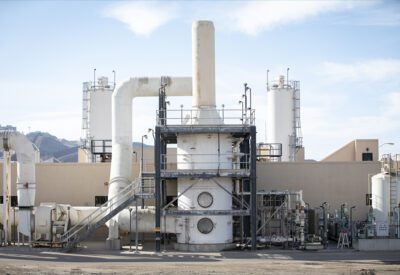We all knew a Republican Party sweep at the federal ballot box could mean big changes for the country, but reality feels a bit different when it’s just a few days away. Residents, businesses, community organizations, government agencies and elected officials are all waiting on pins and needles to figure out exactly what the Trump administration means for us. As the Union-Tribune has expertly captured in a series of news stories, the breadth of various threats is enormous.
Yet there’s no reason for San Diego to only strike a defensive and reactive posture when it comes to federal Washington. There will certainly be impacts and challenges for our region, but we should also focus on extracting benefits for us.
As inauguration day draws nearer, San Diego needs an offensive game plan to meet the moment and deliver regional value.
One obvious place to look is our infrastructure asks. The Infrastructure Investment and Jobs Act, a priority of the Biden administration, is already investing in roads, bridges and other critical investments in San Diego and across the nation. The Trump administration will have approximately $294 billion left to distribute, which includes about $80 billion in competitive awards, according to the Brookings Federal Infrastructure Hub tracker. Few expect this funding to be clawed back.
Our region can remain competitive in securing these funds if we: 1) prioritize areas where common ground already exists; 2) identify projects with regional importance; 3) engage our civic sector; and 4) align our strategy and approach with what we’re hearing are the priorities in the new Washington.
In fact, San Diego has already been successful in receiving funds from the infrastructure law when we think regionally. Per Brookings analysis, this legislation has funneled an incredible $1.71 billion to the San Diego region over the past two years, like the $54 million replacement of the San Dieguito River Railway Bridge in Del Mar to ensure passenger and freight rail connections to Los Angeles and beyond. San Diego’s civic and public institutions should continue to apply.
By contrast, the clean energy-focused Inflation Reduction Act is within the president-elect and congressional Republican’s crosshairs. While it is unlikely that the entire legislation will be repealed, the most vulnerable provisions are those that San Diego’s households and businesses can access directly, including discounts on electric vehicle purchases and energy efficiency credits for homes and businesses.
San Diego’s regional institutions should take a leadership role and help residents and businesses tap these tax credits within the next year before they may expire. Some of that work can be awareness-building, like sharing information with mom-and-pop contractors. Some could be finance-based, offering discounted or no-cost loans to nonprofits and targeted communities who may need upfront financing to make bigger purchases.
The new Washington will undoubtedly pass federal legislation on border security. While there are real policy differences and humanitarian concerns that will need to be addressed, it is likely that this legislation could be a vehicle for continued funding and progress to address the border sewage crisis.
The International Boundary and Water Commission has been awarded over $600 million in funding to rehabilitate the main sewage treatment plant (South Bay International Wastewater Treatment Plant), but more is needed for the region to address dry weather flows, reduce sediment and trash flows, and improve the communities that have been impacted for decades by the rampant pollution. There are numerous projects that have been identified by the IBWC and community partners as critical core priorities. We will need to prioritize funding for the Tijuana River Valley, including as part of border security debates.
The next four years in Washington will be marked by challenges, especially on core humanitarian issues like climate change and immigration. But we can still use this moment, and particularly the next two years, to our advantage. There remain billions left in funding that can come to San Diego. Let’s be proactive and rebuild together.
Wier is the vice president of chief policy and strategy officer at San Diego-based Policy & Innovation Center and lives in San Diego. Tomer is a senior fellow at the Brookings Institution and lives in Washington, D.C..



